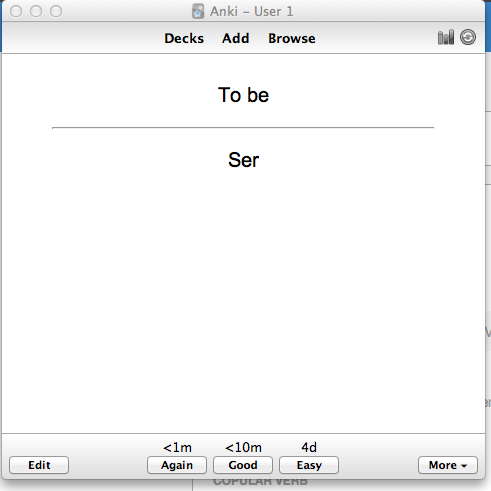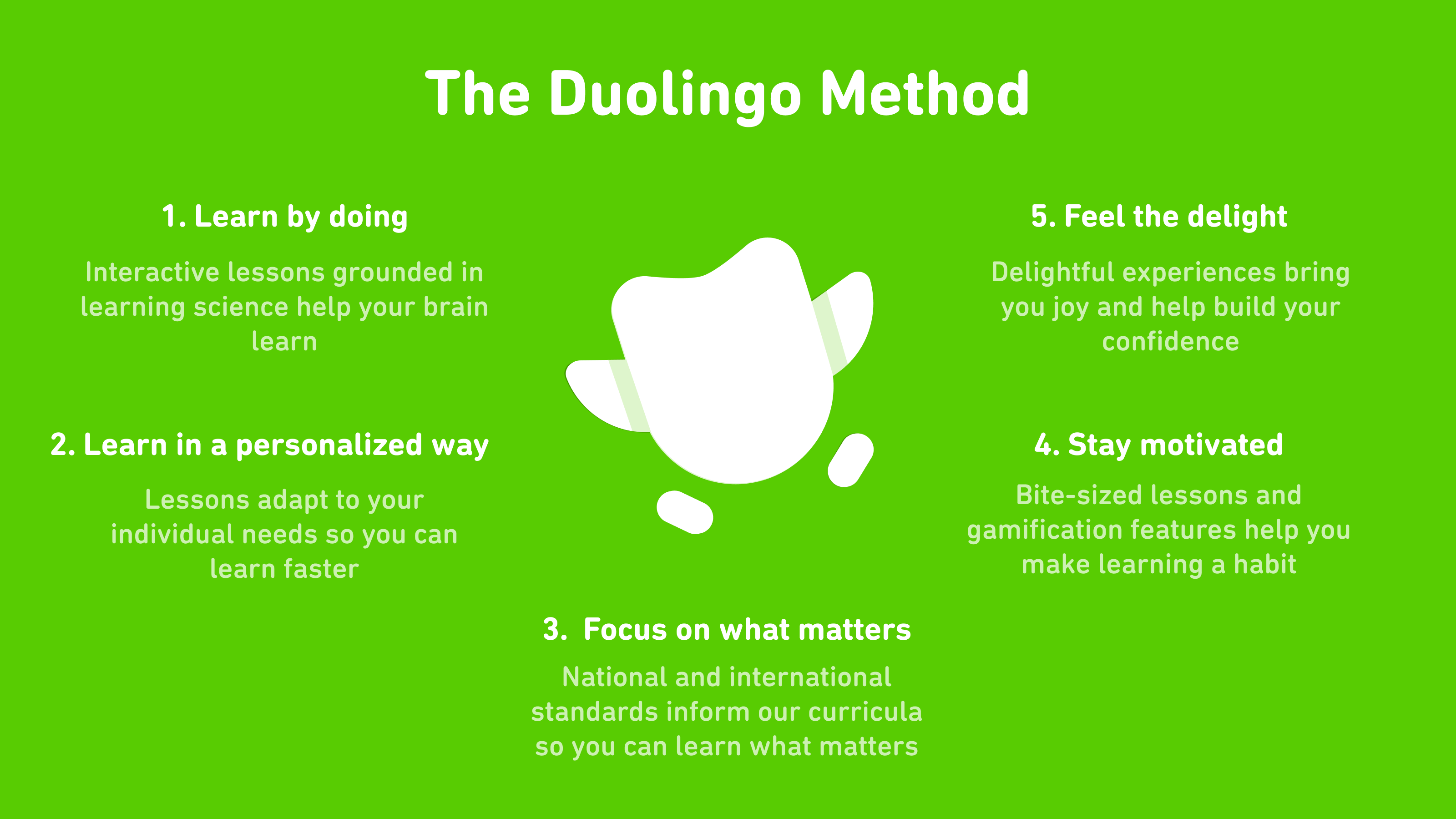Anki vs Duolingo: Which App Boosts Your Language Skills Best?

Learning a new language has never been more accessible, thanks to the rise of language-learning apps like Anki and Duolingo. Both platforms have gained immense popularity, but they cater to different learning styles and goals. Anki, known for its customizable flashcards and spaced repetition system, focuses on long-term retention and vocabulary building. On the other hand, Duolingo offers a gamified experience with structured lessons, making it ideal for beginners and casual learners. This article delves into the strengths and weaknesses of each app, helping you decide which one aligns best with your language-learning journey and maximizes your progress effectively.
Anki vs Duolingo: Which App Boosts Your Language Skills Best?
When it comes to language learning, Anki and Duolingo are two of the most popular tools available. Both apps have unique features and approaches to helping users improve their language skills. However, they cater to different learning styles and goals. Below, we’ll explore the key differences between these two platforms to help you decide which one might work best for you.
1. Learning Methodology: Spaced Repetition vs Gamification
Anki is built around the concept of spaced repetition, a scientifically proven method that helps users retain information by reviewing it at optimal intervals. This makes it ideal for memorizing vocabulary, phrases, and even complex concepts. On the other hand, Duolingo uses gamification to make learning fun and engaging. It incorporates points, streaks, and levels to motivate users, which can be particularly appealing for beginners or casual learners.
See AlsoDoes Duolingo Teach Kanji? A Detailed Review & Analysis2. Customization: Flexibility vs Structured Lessons
One of Anki's biggest strengths is its customization. Users can create their own flashcards or download shared decks tailored to specific languages or topics. This flexibility allows for a personalized learning experience. In contrast, Duolingo offers a more structured approach, with pre-designed lessons that follow a set curriculum. While this can be helpful for beginners, it may feel restrictive for advanced learners.
3. Language Depth: Advanced vs Beginner-Friendly
Anki is often favored by advanced learners or those studying less common languages, as it allows for in-depth customization and the inclusion of complex material. Duolingo, however, is more beginner-friendly, focusing on foundational vocabulary and grammar. While it offers some advanced content, it may not be as comprehensive as Anki for higher-level learners.
4. User Engagement: Passive vs Active Learning
Duolingo excels in keeping users engaged through its interactive exercises and game-like interface. This makes it easier to stay motivated and consistent. Anki, while highly effective, requires more self-discipline and active participation, as it relies heavily on user-generated content and manual review scheduling.
See AlsoIs Duolingo Good For Spanish Test: Pros, Cons & Effective StrategiesBoth apps offer free versions, but their premium features differ. Anki is free for most platforms (except iOS), while Duolingo offers a freemium model with ads and limited features in the free version. Duolingo’s premium subscription removes ads and provides additional perks, such as offline access and unlimited hearts.
| Feature | Anki | Duolingo |
|---|---|---|
| Learning Method | Spaced Repetition | Gamification |
| Customization | Highly Customizable | Structured Lessons |
| Target Audience | Advanced Learners | Beginner-Friendly |
| User Engagement | Requires Discipline | Interactive and Fun |
| Cost | Free (except iOS) | Freemium Model |
What is the 1 best language learning app?

What Makes Duolingo the 1 Best Language Learning App?
Duolingo is widely regarded as the 1 best language learning app due to its user-friendly interface, gamified learning experience, and accessibility. It offers courses in over 40 languages, making it a versatile choice for learners worldwide. The app uses a combination of short lessons, interactive exercises, and progress tracking to keep users engaged. Additionally, its free version provides substantial value, while the premium version removes ads and offers offline access.
See AlsoDoes Duolingo Have Tagalog Courses in 2025?- Gamification: Duolingo incorporates game-like elements such as streaks, rewards, and leaderboards to motivate users.
- Accessibility: Available on both mobile and desktop platforms, it caters to a wide range of users.
- Variety of Languages: From Spanish to Klingon, Duolingo offers an extensive selection of languages.
How Does Duolingo Compare to Other Language Learning Apps?
Compared to other language learning apps like Babbel, Rosetta Stone, and Memrise, Duolingo stands out for its free accessibility and engaging approach. While Babbel focuses on conversational skills and Rosetta Stone emphasizes immersion, Duolingo balances vocabulary, grammar, and listening exercises. Its bite-sized lessons are ideal for busy learners, whereas other apps may require longer time commitments.
- Cost: Duolingo’s free version is more comprehensive than many competitors.
- Engagement: Its gamified system keeps users motivated longer than traditional methods.
- Flexibility: Lessons can be completed in as little as 5 minutes, making it highly adaptable.
What Are the Key Features of Duolingo?
Duolingo’s success lies in its key features, which include personalized learning paths, speech recognition, and a vibrant community. The app adapts to the user’s learning pace, ensuring that lessons are neither too easy nor too difficult. Its speech recognition technology helps improve pronunciation, while the community forums allow learners to interact and seek help.
- Personalized Learning: Tailors lessons based on user performance and goals.
- Speech Practice: Includes speaking exercises to enhance pronunciation.
- Community Support: Offers forums and discussion boards for peer interaction.
Who Can Benefit from Using Duolingo?
Duolingo is suitable for a wide range of learners, from beginners to intermediate-level students. It is particularly beneficial for those who prefer a self-paced and flexible learning environment. Additionally, its playful design makes it appealing to younger audiences, while its comprehensive content caters to adults seeking to learn a new language for travel, work, or personal growth.
See AlsoDoes Duolingo Teach Mandarin Chinese: Is It Worth Your Time?- Beginners: Ideal for those starting from scratch with no prior knowledge.
- Casual Learners: Perfect for individuals learning for fun or travel purposes.
- Busy Professionals: Fits into tight schedules with short, manageable lessons.
What Are the Limitations of Duolingo?
While Duolingo is highly effective, it has some limitations. It may not be sufficient for advanced learners seeking fluency, as it focuses more on vocabulary and basic grammar. Additionally, the lack of live interaction with native speakers can hinder conversational skills. Some users also find the repetitive exercises monotonous over time.
- Advanced Learning: Not ideal for achieving fluency or mastering complex grammar.
- Conversational Practice: Lacks real-time interaction with native speakers.
- Repetition: Some users may find the exercises repetitive after extended use.
Is Anki actually good for language learning?

How Does Anki Enhance Vocabulary Retention?
Anki is highly effective for vocabulary retention due to its use of spaced repetition. This system ensures that words are reviewed at optimal intervals, reinforcing memory over time. Here’s how it works:
- Spaced repetition schedules reviews based on how well you remember a word.
- It adapts to your learning pace, focusing more on difficult words.
- You can add custom flashcards with images, audio, and example sentences for better context.
Can Anki Help with Grammar Learning?
While Anki is primarily designed for vocabulary, it can also aid in grammar learning when used creatively. Here’s how:
- Create flashcards for grammar rules and example sentences.
- Use cloze deletions to practice filling in missing grammar elements.
- Incorporate audio or visual cues to reinforce grammar patterns.
Is Anki Suitable for Beginners in Language Learning?
Anki is suitable for beginners as it allows for gradual and structured learning. Here’s why:
- You can start with basic vocabulary and gradually add more complex words.
- It provides a low-pressure environment to learn at your own pace.
- Pre-made decks are available for many languages, making it beginner-friendly.
How Does Anki Compare to Traditional Language Learning Methods?
Anki offers several advantages over traditional methods like textbooks or classroom learning. Here’s a comparison:
- Anki uses spaced repetition, which is scientifically proven to improve retention.
- It is highly customizable, allowing you to focus on your specific needs.
- Traditional methods often lack the adaptability and personalization that Anki provides.
What Are the Limitations of Using Anki for Language Learning?
While Anki is a powerful tool, it has some limitations in language learning. Here’s what to consider:
- It focuses mainly on vocabulary and may not fully develop speaking or listening skills.
- Creating effective flashcards requires time and effort.
- Over-reliance on Anki without practicing real-world language use can limit progress.
What is a better language app than Duolingo?

Why Consider Alternatives to Duolingo?
While Duolingo is a popular language-learning app, it may not suit everyone's needs. Some users find its gamified approach too repetitive or lacking in depth for advanced learners. Alternatives often provide more comprehensive lessons, better grammar explanations, and a focus on real-world conversations.
- Limited grammar explanations: Duolingo often skips detailed grammar rules.
- Repetitive exercises: The app can feel monotonous over time.
- Focus on gamification: Some users prefer a more structured learning approach.
Top Language Learning Apps Better Than Duolingo
Several apps offer more advanced features and tailored learning experiences compared to Duolingo. These apps focus on immersive learning, personalized lessons, and real-world applications.
- Babbel: Known for its structured lessons and focus on conversation skills.
- Rosetta Stone: Offers immersive learning with a focus on pronunciation and vocabulary.
- Memrise: Uses real-life videos and native speakers for a more authentic experience.
Babbel: A Structured Alternative to Duolingo
Babbel is often considered a better option for those seeking a more structured and grammar-focused approach. Its lessons are designed by language experts and focus on practical conversations.
- Grammar-focused lessons: Babbel provides clear explanations of grammar rules.
- Real-world conversations: Lessons are tailored to everyday situations.
- Shorter, focused sessions: Ideal for busy learners.
Rosetta Stone: Immersive Language Learning
Rosetta Stone is a well-known alternative that emphasizes immersive learning. It uses images, audio, and text to teach languages without translations, mimicking how we learn our first language.
- Immersive method: No translations, just direct associations.
- Speech recognition: Helps improve pronunciation accuracy.
- Comprehensive content: Covers reading, writing, speaking, and listening.
Memrise: Learning Through Real-Life Contexts
Memrise stands out by using videos of native speakers and real-life scenarios to teach languages. This approach helps learners understand cultural nuances and everyday language use.
- Native speaker videos: Learn pronunciation and expressions from locals.
- Cultural insights: Understand the context behind the language.
- Interactive exercises: Engaging and varied learning methods.
Does Duolingo improve language skills?

How Effective is Duolingo for Learning Vocabulary?
Duolingo is highly effective for building vocabulary due to its structured approach and repetition-based learning. The app uses gamification to keep users engaged, which helps in retaining new words. Key features include:
- Spaced repetition: Ensures words are revisited at optimal intervals for long-term retention.
- Contextual learning: Words are introduced in sentences, making it easier to understand their usage.
- Interactive exercises: Activities like matching, listening, and speaking reinforce vocabulary acquisition.
Can Duolingo Help Improve Grammar Skills?
Duolingo provides a solid foundation for understanding grammar through its structured lessons and exercises. However, it may not cover advanced grammar in depth. Key aspects include:
- Basic grammar rules: Lessons focus on fundamental concepts like verb conjugation and sentence structure.
- Practice exercises: Users apply grammar rules in context through fill-in-the-blank and translation tasks.
- Immediate feedback: Mistakes are corrected instantly, helping users learn from errors.
Does Duolingo Enhance Speaking Skills?
While Duolingo offers speaking exercises, its ability to improve speaking skills is limited. The app focuses more on pronunciation than conversational fluency. Key points include:
- Pronunciation practice: Users repeat phrases and sentences to improve accent and clarity.
- Lack of real-time interaction: There is no opportunity for live conversation with native speakers.
- Limited fluency development: The app does not simulate real-world speaking scenarios effectively.
Is Duolingo Useful for Listening Comprehension?
Duolingo can improve listening comprehension through its audio-based exercises and native speaker recordings. Key features include:
- Audio exercises: Users listen to phrases and sentences to identify meaning and context.
- Varied accents: Exposure to different accents helps in understanding diverse speech patterns.
- Progressive difficulty: Listening tasks become more challenging as users advance.
Does Duolingo Support Long-Term Language Retention?
Duolingo uses techniques like spaced repetition and daily practice to support long-term language retention. However, consistent use is crucial. Key factors include:
- Daily streaks: Encourages regular practice to reinforce learning.
- Review sessions: Previously learned material is revisited to prevent forgetting.
- Gamification: Rewards and achievements motivate users to stay engaged over time.
Frequently Asked Questions (FAQ)
What are the main differences between Anki and Duolingo for language learning?
Anki and Duolingo serve different purposes in language learning. Anki is a flashcard-based app that uses spaced repetition to help users memorize vocabulary and phrases efficiently. It is highly customizable, allowing users to create their own decks or download pre-made ones. On the other hand, Duolingo is a gamified language learning platform that focuses on teaching grammar, vocabulary, and sentence structure through interactive exercises and lessons. While Anki is more about memorization and retention, Duolingo emphasizes engagement and gradual progression through a structured curriculum.
Which app is better for long-term language retention: Anki or Duolingo?
For long-term retention, Anki often has the edge due to its spaced repetition system, which is scientifically proven to enhance memory retention over time. By repeatedly reviewing flashcards at optimal intervals, users can solidify their knowledge of vocabulary and phrases. Duolingo, while effective for building foundational skills, may not be as strong in ensuring long-term retention because it relies more on gamification and short-term engagement. However, combining both apps can be a powerful strategy, as Duolingo can introduce new concepts while Anki reinforces them.
Can Duolingo replace Anki for vocabulary building?
While Duolingo does include vocabulary-building exercises, it may not fully replace Anki for this purpose. Duolingo's vocabulary lessons are integrated into its broader curriculum, which focuses on grammar, listening, and speaking skills. In contrast, Anki is specifically designed for vocabulary memorization and allows users to focus exclusively on words and phrases they want to learn. Additionally, Anki's customizable flashcards and spaced repetition make it a more targeted tool for vocabulary building. However, Duolingo can still be a valuable supplement for learning new words in context.
Is Anki or Duolingo more suitable for beginners?
For beginners, Duolingo is often more suitable because it provides a structured and guided learning experience. Its gamified approach keeps users motivated, and the lessons are designed to gradually introduce new concepts in an accessible way. Anki, while highly effective, requires more self-direction and may feel overwhelming for beginners who are not yet familiar with the language. However, once a beginner has a basic understanding of the language, Anki can be an excellent tool for reinforcing and expanding their knowledge through customized flashcards and spaced repetition.
Leave a Reply

Related Posts